Latest updates
Towards Free, Fair & Inclusive Elections
June 8, 2023
In Support of UNSMIL
Supporting Libyan women’s political and democratic participation since 2011 through programmes such as the Gender Election Observation Mission (GEOM), Gender Concerns International greatly appreciates the current efforts of the United Nations Support Mission in Libya (UNSMIL), headed by the UN Special Envoy to Libya, Abdoulaye Bathily, to include local Civil Society Organisations, youth and women-led organisations in the upcoming elections 2023.
Together with Libyan partners we will continue to observe the developments surrounding the Libyan elections and will continue to support UNSMIL’s efforts to create a conducive environment for free, transparent, credible, and inclusive and more gender-equal elections.
Gender inclusive elections-enabling mechanism proposed by UN envoy Libya during open briefing Security Council
February 28, 2023
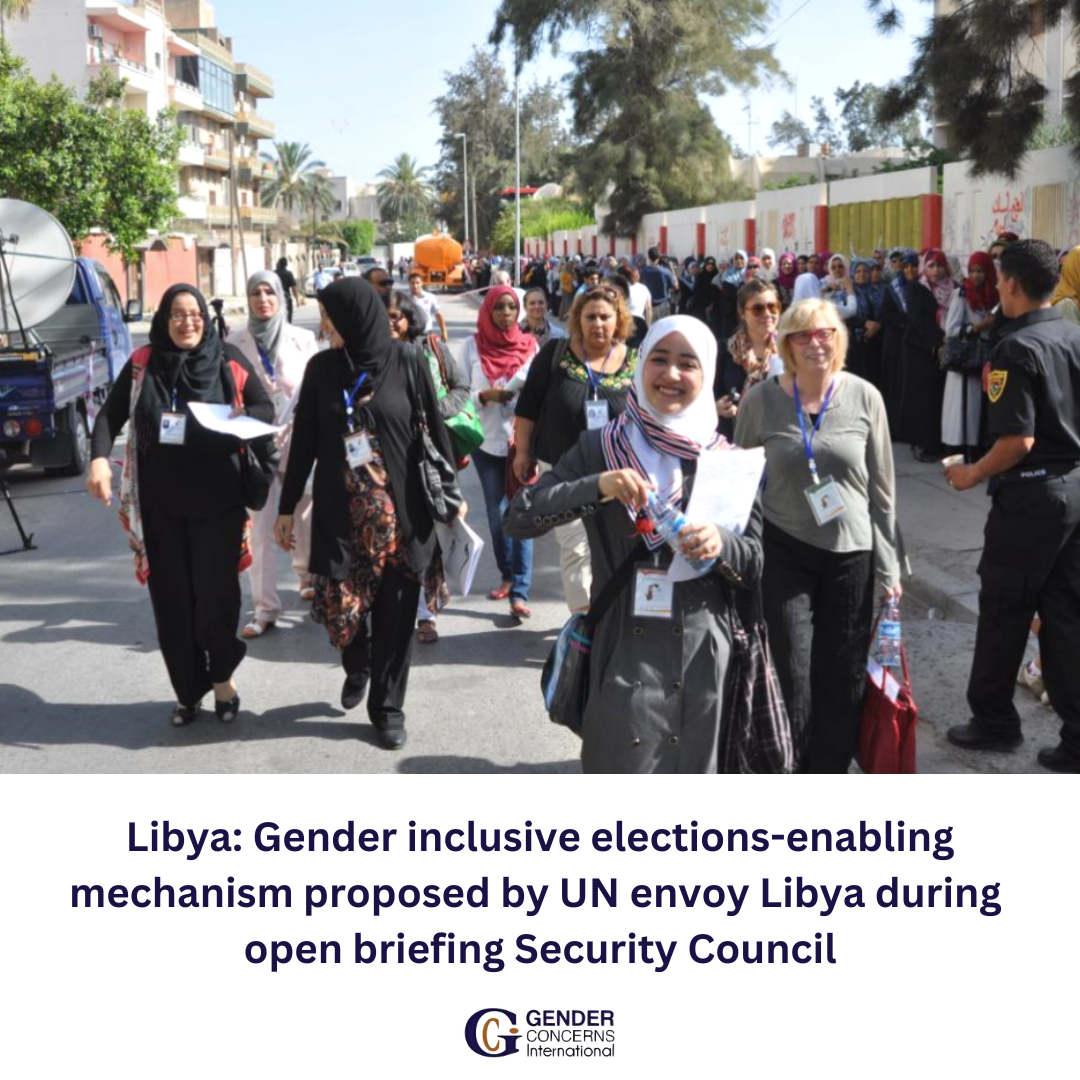
“It is urgent and vital that the assessment of the needs of Libyan women are ranked top to fast-tracking their enhanced inclusion into all electoral processes”, commented director Sabra Bano reflecting on the postponement of elections in Libya scheduled for December 24th2021.
The open briefing held by the Security Council yesterday (27 February) equals that urgency. Libyan women have been particularly vocal about greater need for awareness of their Rights. Recently a group of female government officials spoke up about this online. The General Secretariat for Libyan Women (GSLW) addressed the difficulties for political participation for Libyan women, highlighting that there are few women in political positions, and only six female Libyan Ambassadors out of 148 embassies abroad.
The concerns of the Libyan people, and particularly of Libyan women with the lack of political progress was a key take-away point from yesterday’s meeting. Many question the will and desire of political actors to hold inclusive and transparent presidential and legislative elections in 2023.
As such, a new roadmap for the long-postponed national elections was discussed as well as ‘Libya’s dire human rights situation’, which includes a need to redouble efforts to ensure full, equal, and meaningful participation of women in Libya’s political process as well as the grave situation women human rights defenders face characterized by the concerning recent wave of arrests, following the activation of an anti-cybercrime law on the 17th of February.
As part of this roadmap UN envoy for Libya Abdoulaye Bathily proposed a Libyan-led mechanism to support the holding of crucial elections this year. This includes a new high-level steering panel for the country, aimed at bringing together all relevant Libyan stakeholders, including civil society organisations, women, and youth representatives, to facilitate a timebound legal framework for upcoming elections and to provide a platform to advance consensus around related matters, such as election security.
The representatives from Switzerland and the UAE both expressed their support for Bathily’s efforts and also raised the topic of Libyan women’s political participation. Pascale christine baeriswyl (Switzerland) stressed the nomination of more women to political office and Mohamed Issa Abushahab (UAE) stressed the need to promote the full and meaningful participation of Libyan women in all its aspects.
Gender Concerns International urges that the needs of Libyan women, including professional guidance for female candidate campaigning, women`s general knowledge about voting procedure, better awareness and reporting for Electoral Gender Based Violence and discrimination, The Election Day Administration, and Post-election follow-up, will be given increased attention as a result of Bathily’s proposed multi-stakeholder steering panel and platform.
Gender Concerns International has been supporting Libyan women’s political and democratic participation since 2011.
In partnership with Libyan Civil Society Organisations and supported by UN and EU, the organisation launched effective programs like the Gender Election Observation Mission (GEOM) observing various electionsfor future operations in the struggle to obtain gender equality of Libyan women.
We strongly support the gender inclusive elections-enabling mechanism proposed by UN envoy Bathily yesterday at UN security Council and urgetheinternational community to ensure enhanced representation of Libyan women in political and decision-making processes.
12th Anniversary of Revolution: Congratulations Libya and Friends of Libya
February 17, 2023
"Women's voices were the first calling for change in front of the Court of Justice in Benghazi", Libyan women leaders remembering 17 February 2011 Revolution.
Gender Concerns International documented that historic evidence tributing to women's leadership role in revolutionary struggle for Libya's transformation towards democracy, peace, and prosperity.
“Our Revolution” features leading Libyan women expressing their commitment to action and the need for participation.
Peace and Security are shattered once again in Libya
August 30, 2022
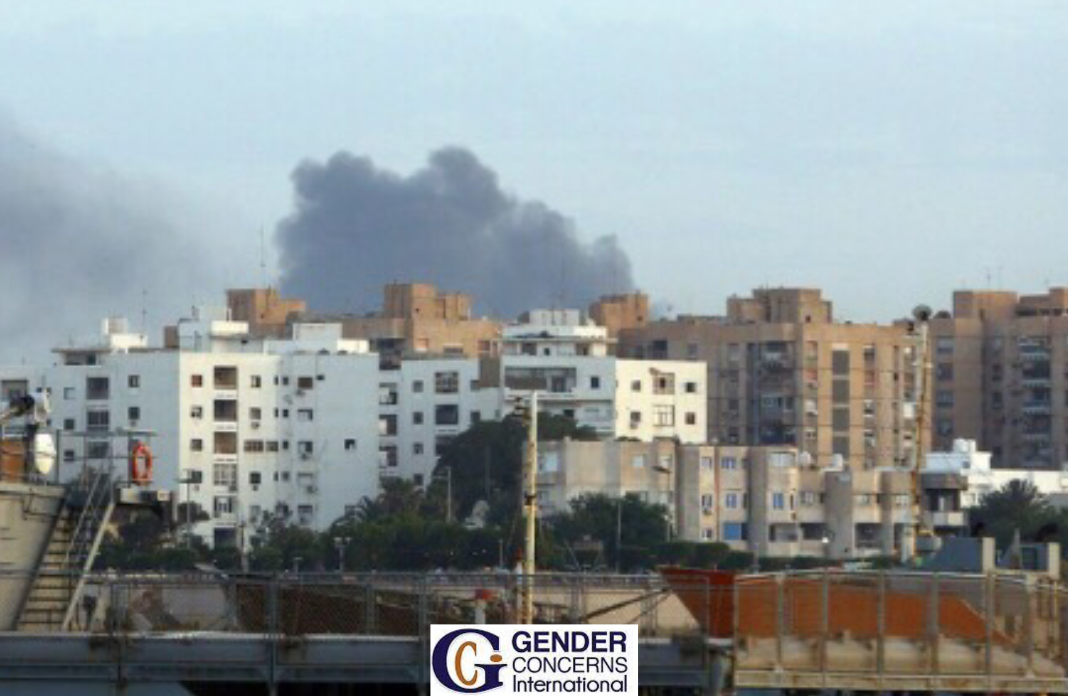
Peace and security are shattered once again in Libya. Recent loss of dozens of lives raises profound concerns and urges swift reaction by the International Community to support and assist peace process to end the war and build sustainable peace in Libya.
Libya: Women and Elections
January 20, 2022
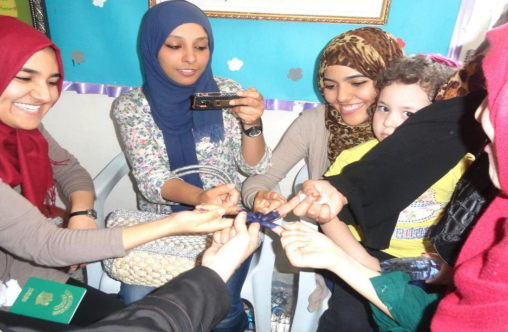
The Libyan elections scheduled for December 24 last year have been delayed as Libyan prioritize to achieve a broader national consensus on constitutional and political considerations.
International Community has been supporting national institutions and civil society organisations in Libya to prepare them for elections. The temporary delay will not likely hold this support process, as a democratically elected government in Libya, legitimises its relations with the rest of the world.
Gender Concernshas been honoured to be invited by The High National Election Commission (HNEC) Libya to observe the December 2021 elections. Organisation accepted the privileged invitation by initiating the formalization of the accreditation process for its Gender Election Observation Mission (GEOM) Libya, International Observers` team.
Now that unfortunately the elections are postponed, it is important to note that this also provides an opportunity to all those promoting gender equality in Libya, to specifically support and capacity-build the women organisations.
“It is urgent and vital that the assessment of the needs of Libyan women are ranked top to fast-tracking their enhanced inclusion into all electoral processes”, commented director Sabra Bano reflecting on the postponement of elections in Libya. This includes professional guidance for female candidate campaigning, women`s general knowledge about voting procedure, better awareness and reporting for Electoral Gender Based Violence and discrimination, The Election Day Administration, and Post-election follow-up.
This time, favours a brilliant chance for the International Community to support full participation, and protection of women`s fundamental human rights in Libya well in line with our joint commitment to UNSCR 1325 and Women, Peace and Security agenda for Libya.
Libyan PM praises Libyan women and shows support for National Action Plan UNSML
October 6, 2021
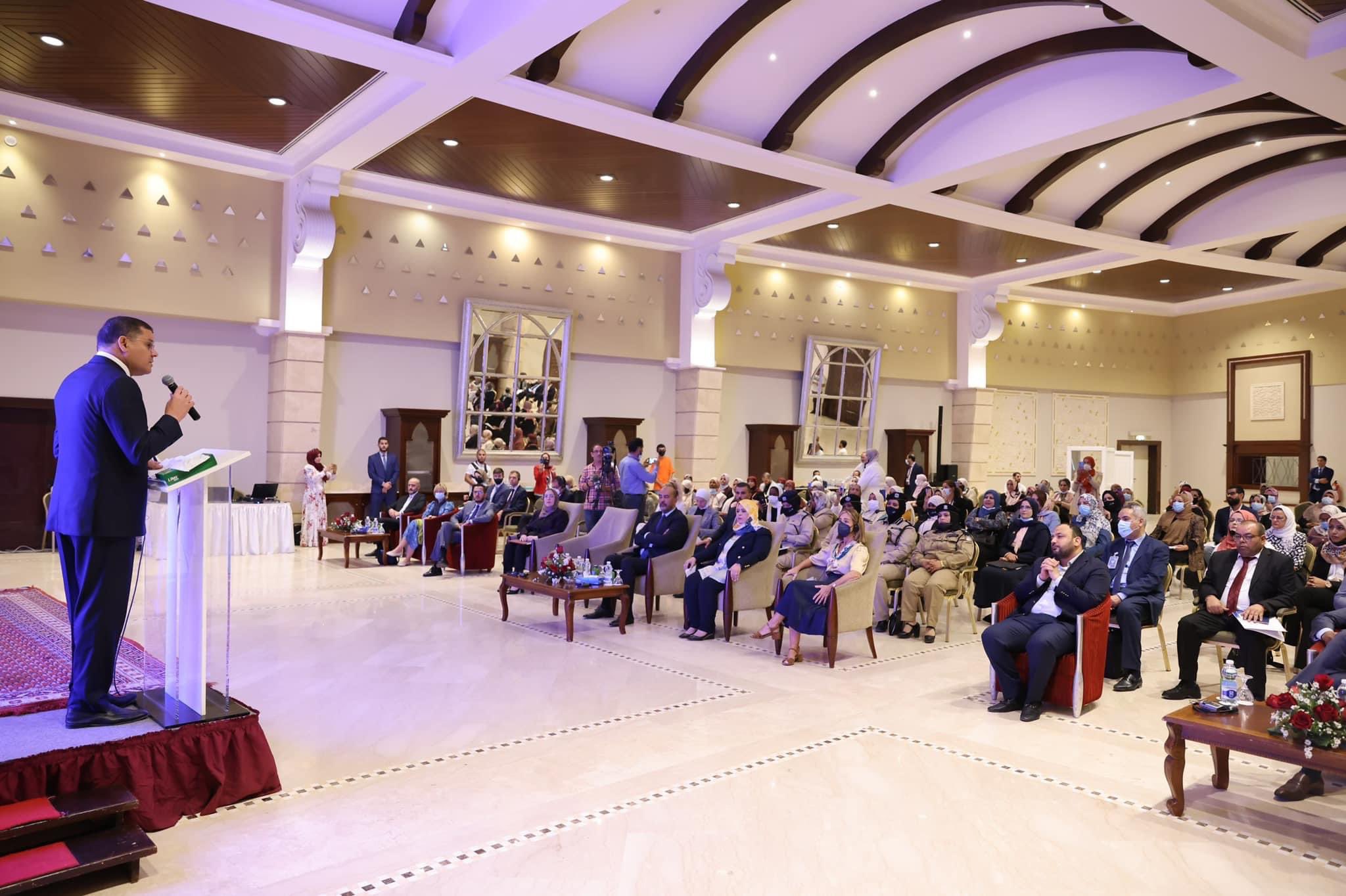
The National Action Plan to implement the agenda for Women, Peace and Security has been launched by the United Nation Support Mission in Libya (UNSML). During the meeting, the Libyan Prime Minister has expressed his views for the initiative applauding Libyan women, as they “have never lost sight of supporting stability in Libya and the return of life to the country”. The UN supported plan aims at strengthening women’s equal participation in all matters of peace and security in line with UNSCR 1325.
As a NAP signatory, Gender Concerns International supports the goals of UNSCR 1325 and looks forward to promoting female leadership and gender equality during the upcoming Libyan elections.
Libyan Women Demand Inclusion for Peace and Rebuilding
November 17, 2020
There is no lasting peace and rebuilding possible without the inclusion of women. Gender Concerns International fully supports the statement of the participating women in the Libyan Political Dialogue Forum, and highlights the importance of their inclusion. A seat at the table of the forum for these women allows them to speak up for the rights of all women in Libya. A sustainable peace and the rebuilding of Libya are is only possible if we listen to these women.
The Statement of the Libyan Women Participating in the Libyan Political Dialogue Forum
Believing in the importance of the role of women as a real national partner in promoting peace, peaceful dialogue, and rebuilding the state on the foundations of sovereignty, unity, civil peace, national reconciliation, justice, equality and equal opportunities between the sons and daughters of the nation;
With the aim of protecting the gains of Libyan women and reinforcing their effective participation in political life and in the decision-making process at all levels as a basic pillar of democratic practice,
In response to and in implementation of the United Nations Security Council Resolution (#1325) on women, peace and security issued on October 31, 2000, and the United Nations Security Council Resolution (# 2467) on combating sexual violence in conflicts issued on April 23, 2019,
Emphasising the need to incorporate the recommendations that emerged from the preliminary consultative track of the Libyan Political Dialogue Forum convened by the United Nations Support Mission in Libya (UNSMIL) in October with broad participation of Libyan women during four consultative sessions (via Zoom),
We, the Libyan women participating in the Libyan Political Dialogue Forum held in Tunis on 9-14 November 2020, the signatories, declare our adherence to the following principles and recommendations:
1. In the formation of the executive authority, the real representation of women in leadership positions shall be taken into account. The representation of women shall be no less than 30% while providing all guarantees of competence, including technical expertise, academic qualification, and integrity.
2. Ensuring respect for the rights of women belonging to the various cultural components of Libyan society, as well as their effective engagement and participation in political life in a manner that promotes the efforts of Libyan women and makes good use of their competencies.
3. In the designation process of the two deputy prime ministers, one of the two deputies shall be a woman in order to reinforce and activate the principle of the women’s participation in decision-making and the state-building.
4. Restructuring and activating the Women’s Empowerment Unit that shall consist of three experienced women. The Women’s Empowerment Unit shall be entrusted with the task of amending the strategic proposal developed in 2015 by Libyan female leaders in cooperation with UNMSIL’s Women’s Support Office, and establishing an independent and functional Council for Women.
5. The State shall fulfill its international commitments and respect the conventions and treaties related to the rights and protection of women as ratified by the Libyan state.
6. Taking the necessary measures to combat and eliminate discrimination against women, especially against female survivors of conflict-related violence. This shall be done by putting in place mechanisms for the professional and social integration and economic empowerment of women.
7. Provide psychosocial and legal support services to female survivors of gender-based violence.
8. Provide special protection for women, especially for politically active women and activists. This shall be done through the development and enforcement of national laws to combat and eliminate all forms of violence against women.
We also recommend that in the formation of the Government of National Unity, competency, merit, and fair representation of the political and geographical diversity shall be taken into account; participation of cultural components shall be guaranteed, and the importance of the genuine representation of youth shall also be taken into consideration. Youth shall represent no less than 20% of the Government of National Unity’s leadership positions.
We hope that the Libyan Political Dialogue Forum will contribute to supporting the full participation of Libyan women in all efforts aiming at establishing peace throughout Libya and leading the country down the path to stability and prosperity.
Source: UNSMIL
Tripoli Bombings Shattering Women’s Safety
March 4, 2020
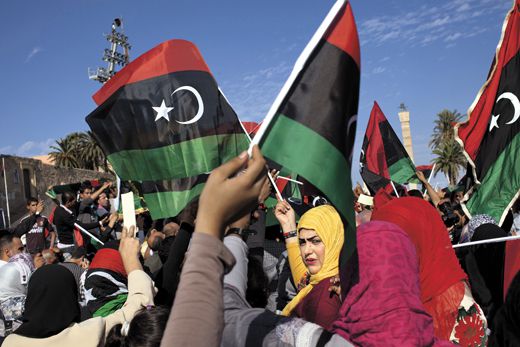
Gender Concerns International stresses the need for greater attention and protection of women in the armed conflict zone of Libya. Women’s and civil society organizations in Libya condemn the heavy shelling around Tripoli’s Mitiga aiport that causes the dislocation of thousands of women and children putting them in grave danger on a daily basis. They also demand greater involvement of the UN Mission in Libya (UNSMIL) to put an end to these violations and reach a much-awaited final solution for peace.
While Libya celebrated the ninth anniversary of the February Revolution, both the UN-recognized Government of National Accord (GNA) and the Libyan National Army (LNA) forces led by Gen. Khalifa Haftar have suspended their involvement in the UN Peace Talks, subsequently disrupting the plans for a ceasefire agreement approved by both parties in early January 2020. Consequently, the UN Special Envoy to Libya, Mr. Ghassan Salame, has resigned due to increased stress caused by continuous yet often unsuccessful efforts to bring peace to the country. The UN has yet to make a statement about the next Special Envoy in Libya. A female perspective to conflict resolution might be what Libya needs at the moment, and what Libyan women deserve.
Women’s organizations in Libya call for the inclusion of women in the UN-led peace process to ensure the development of a long-lasting peace agreement made by Libyans, for Libyans.
Peace into Pieces: Arms Embargo in Libya doesn't hold
January 28, 2020
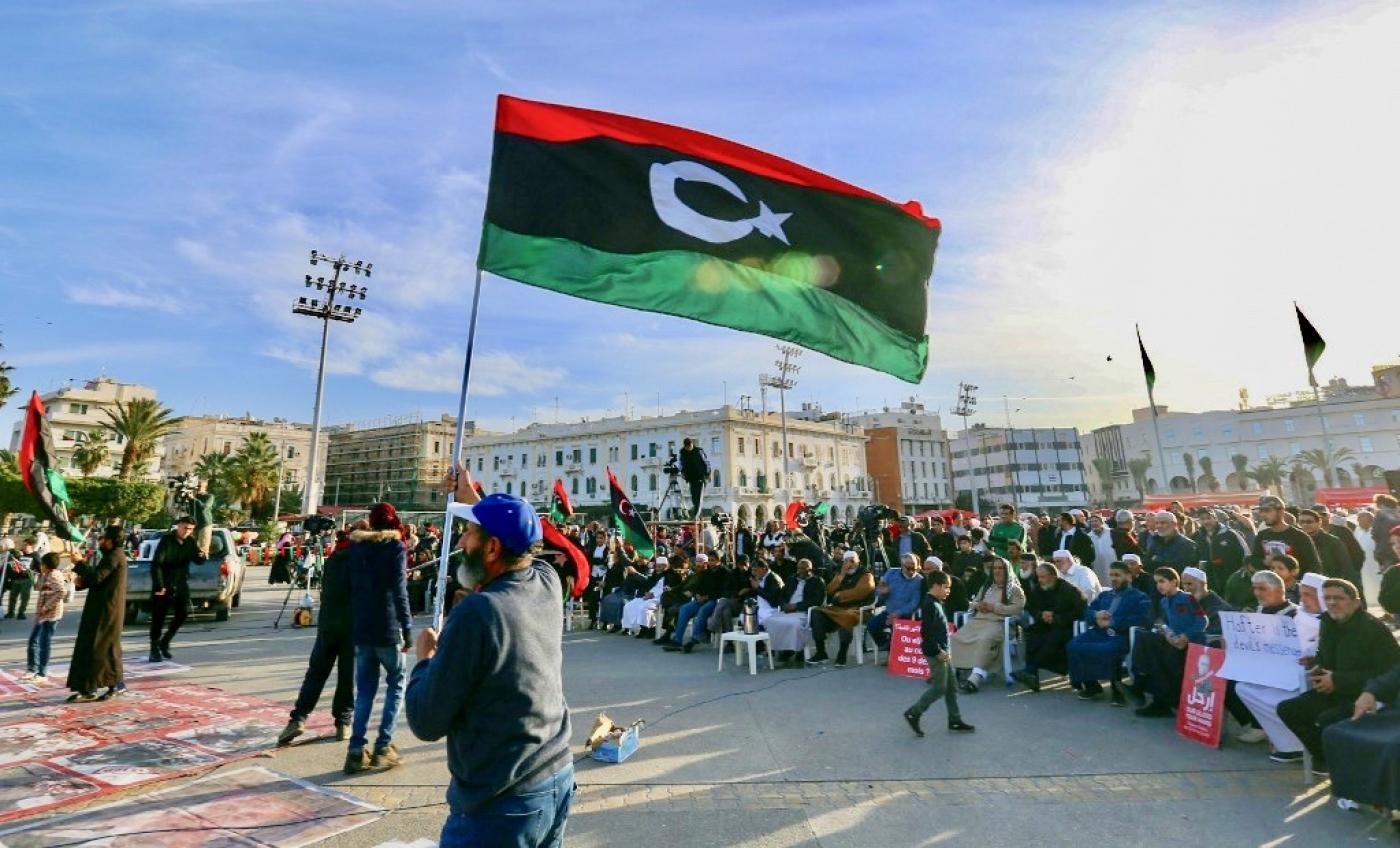
Once again, the meddling of International Foreign powers obstructs the possibility of a peaceful resolution to the Libyan conflict. Breaking the ceasefire only 10 days after its completion shows how the sides to the conflict are not committed to a peaceful resolution and letting Libya deal with its own affairs.
Despite all international efforts and the Berlin conference last week, the ceasefire in Libya seems to have been fruitless. Foreign shipments to Libyan combatants have resumed breaking the arms embargo that was put in place.
These shipments are being supplied by foreign powers who had pledged just days earlier to stop supplying weapons to the Libyan conflict. The UN reported that over the last 10 days, numerous cargo flights have been landing at Libyan airports providing the parties to the conflict with advanced weapons, armoured vehicles, advisers and fighters.
Berlin summit backs Libya ceasefire and puts sanctions on countries who break arms embargo
January 21, 2020
Gender Concerns International welcomes the outcome of the Berlin Summit and hopes that the ceasefire is respected. People in Libya have suffered for long enough, they deserve peace now!
On Sunday a Peace Summit in Berlin was convened with all parties to the conflict in attendance.
The goal of the summit was to support the tentative ceasefire in Libya. World leaders agreed to impose sanctions on countries breaking the arms embargo. This measure highlights the role that international actors have played in fuelling the conflict.
The option of sending a multinational observation force to monitor the ceasefire was discussed. The UK, Germany and Italy, showed their willingness to send troops to monitor the peace, this is however under the condition that there is a clear UN mandate.
Both sides to the conflict, the UN-recognised government and the Libyan National Army of General Haftar, have agreed to nominate five members to an UN ceasefire monitoring committee.
It has to be noted however that there are serious concerns that the signatories to the summit´s declarations will remain committed to their pledges.
International Peace Conference to discuss the Libyan Ceasefire agreement.
January 14, 2020
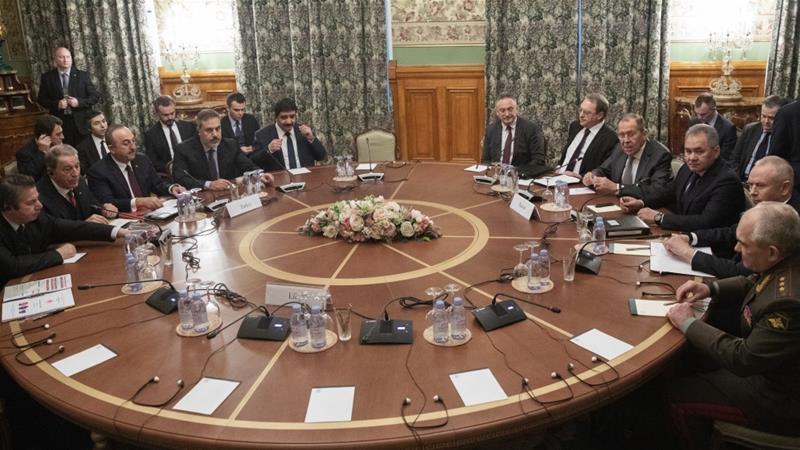
Gender Concerns International together with its partners in Libya fully endorses the tentative ceasefire agreement that has come about. The organisation hopes to contribute to support the process of security and peace in Libya, as Libya deserves it and Libya needs it!
In a breakthrough on last Saturday, both sides in the civil war, the UN-recognised Government of National Accord (GNA) based in Tripoli and the Libyan National Army (LNA) forces led by Gen. Khalifa Haftar, agreed to a ceasefire proposed by Russia and Turkey.
The United Nations Mission in Libya (UNSMIL) expressed it full readiness to support the Libyans and to "use all its capabilities to assist them in a peaceful and final solution in the Libyan crisis" in a statement.
Despite some minor violations of the agreement, it is still respected and being supported by various members of the international community. The EU supports an International Peace Conference to be held in Berlin, Germany. The Peace Conference will require from all 11 states that are intervening in the country to pledge their non-interference.
International Community Divided on Libya: ´Keep your hands-off Libya´ says Salamé the UN Special Envoy to Libya
January 10, 2020
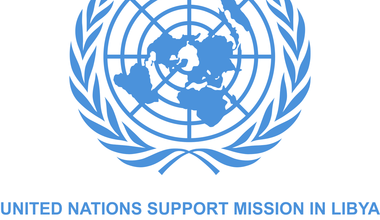
Today, Three Turkish soldiers were killed during fights by the Libyan National Army (LNA). The LNA is pushing to take the city of Misrata a key stronghold of the U.N. recognised Libyan government, which is also backed by Turkey. Turkey entered the conflict last month when their President announced that they were sending military personnel to Libya to help train and advise the Government.
Ghassan Salamé, The United Nations special Envoy to Libya has expressed his disappointment over the foreign interference in Libya. In a closed door meeting he spoke about how the country is suffering through the heightened interference by mercenaries that are send by some countries causing serious suffering for people in Libya.
The Envoy demonstrated his concerns over The Security Council´s failure to reach an agreement on ceasefire and the consensus to release a clear joint international message.
Salamé in his press statement commented on how he was angry to see that everybody wants to talk about Libya and only very few people wish to talk about the Libyans and what happens to them.
Gender Concerns shares this view and calls for enabling access to civil society. Enough is enough Libyan counterparts should be able to receive support from international civil society organisations.
Women in Libya are the worst victims of the rising tension and fragile peace and security situation.
Three sisters are added to the casualties of the Libyan conflict
October 15, 2019
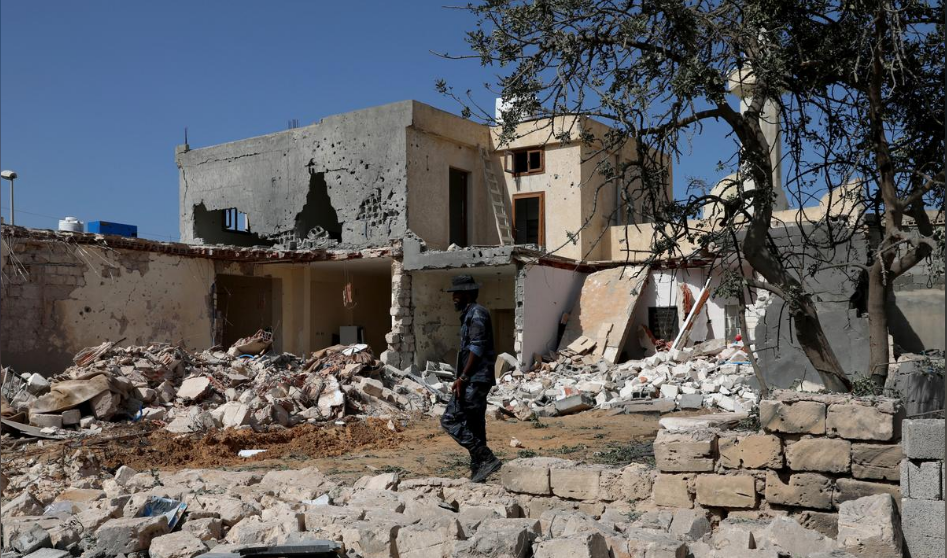
Gender Concerns condemns the airstrike yesterday morning in the central Tripoli residential area of Furnaj. The attack ended the lives of three innocent young sisters and injured their mother and another sister. The airstrike left their home in rubbles and has caused panic and horror in the civilian neighbourhood.
The Libyan conflict has killed hundreds and displaced thousands of people. Gender concerns and its Libyan partners call on the international community to protect women in the conflict and take all necessary measures to put an end to the violations of Human Rights and Humanitarian law in Libya.
Picture: REUTERS/Ismail Zitouny
MP Seham Sergiwa Kidnapping Case Remains Unresolved, Addressing the Deteriorating Human Rights Situation in Libya
October 7, 2019
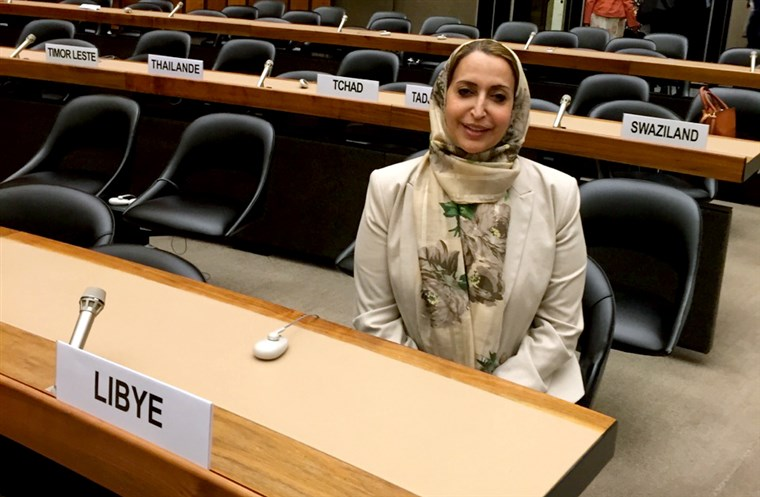
One of Libya’s most prominent female politicians and women’s rights activists MP Seham Sergiwa was kidnapped earlier this year in July. Ms. Sergiwa is accused of publicly criticizing the military assault committed by Khalifa Haftar on Libya’s capital Tripoli, during the elections in April this year. Some of Sergiwa’s family members witnessed her kidnapping and saw masked men from the 106th Battalion, one of the forces commanded by Mr. Haftar. To this date, Sergiwa’s family has not received any news on her situation or whereabouts, increasing the probability that she is no longer alive.
This incident, in combination with the many other human rights violations taking place in Libya, has triggered response from the international community. Women´s rights and civil society organisations are building pressure and demand the UN to take serious measures to address these atrocities against civilians. They further demand an investigative mechanism to be installed in Libya, that is capable to counter impunity and decrease the incidents of human rights violations taking place in the country now. So far, the UN has not undertaken action but recognises that additional humanitarian support is needed in Libya.
Libya Detention Center Airstrike Kills Many Women and Children
July 4, 2019
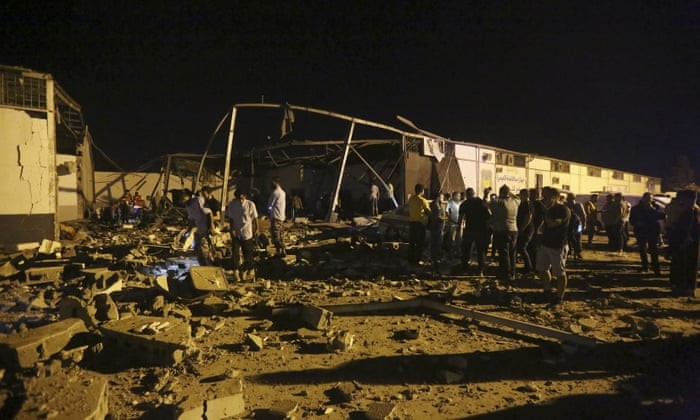
Director Sabra Bano, expresses her deep concern about the recent escalation of the conflict in Libya and the airstrike on a migrant detention center outside Tripoli that killed at least 44 people and injured over 130, including women and children. The worsening crisis in Libya requires the international community to collectively and effectively work together to improve the peace and security situation in the country that has caused much suffering, particularly to the most vulnerable in society, urges Bano!
Libyan parliament takes up further debate of Draft Constitution
As one of the contributors in the process of drafting a new Libyan constitution, Gender Concerns International welcomes the news that on Monday, the 25th of June, the House of Representatives, Libya’s only parliament currently recognized by the international community, has held the first meeting discussing the draft constitution and a possible referendum.
According to Abdalla Belheeq, official spokesperson of the House of Representatives, the parliaments 78 members will debate the proposed constitution article by article.
While the elected Constitutional Drafting Assembly (CDA) had already presented the latest constitution draft to the parliament in Summer 2017, a lower court ruling in Beida had prevented further debate of the draft. This decision was overruled by the Supreme Court in February, paving the way for the House of Representatives to take action in regards to discussion of and voting on the constitutional draft.
Gender Concerns International observes this development with great interest and hopes that progress on the constitution will be made timely as Libyan parliamentary and presidential elections, which are scheduled on 10th of December 2018, approach.
Draft of the New Libyan Constitution
Gender Concerns is happy to hear that the Libyan Constitutional Draft Assembly has reached an agreement on a draft of the new Libyan Constitution.
Gender Concerns is proud to have facilitated for several Libyan Women's Organisations to participate in the constitutional process by drafting the Gender-sensitive Constitution which was presented to the CDA.